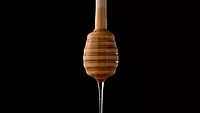Canadian Testing Reveals 28,000 Pounds of Adulterated Honey

The Canadian Food Inspection Agency’s (CFIA) recent surveillance and enforcement actions have stopped over 28,000 pounds of adulterated honey from entering the Canadian market.
The honey—valued at nearly $77,000—was discovered during targeted tested carried out by CFIA. Under Canadian law, honey is a standardized product. If sugars or syrups are added, it is then considered an adulterated product and cannot legally be sold as authentic honey within Candian borders.
“Consumers expect their honey to be 100 percent honey. Intentionally adding sugars to honey is food fraud and is intended to increase the amount of honey by diluting it. We need to protect Canadians from deceptive food practices and ensure industry complies with regulatory requirements,” says Marie-Claude Bibeau, Canada’s Minister of Agriculture and Agri-Food.
CFIA’s targeted testing, conducted in 2018, uncovered the following:
- 100 percent of Canadian-harvest honey samples were authentic
- 78 percent of 240 samples collected across Canada were authentic; the remaining samples had added sugars
Testing was primarily focused on risk areas, including establishments that had a history of noncompliance, gaps in preventative controls, or unusual trading patterns.
CFIA’s regular testing of honey looks for the presence of sugar cane and corn syrup. This current testing also looked for rice syrup and beet sugar with the help of a new scientific testing method.
Under the Government of Canada’s 2019 budget, the Food Policy for Canada was granted $24.4 million over a 5-year span to pinpoint instances of food fraud, mislabeling, and misrepresentation of food products in order to protect consumers from deception and companies from unfair competition. CFIA’s findings will help further refine the agency’s compliance and enforcement activities, along with budget funding provided to enhance CFIA’s ability to continue to detect adulterated honey.
See CFIA's full report.
Sign up for Food Safety Magazine’s bi-weekly emails!
Subscribe to our podcast: Food Safety Matters!
Looking for quick answers on food safety topics?
Try Ask FSM, our new smart AI search tool.
Ask FSM →







